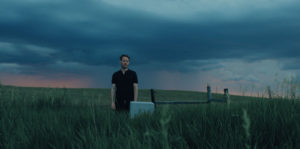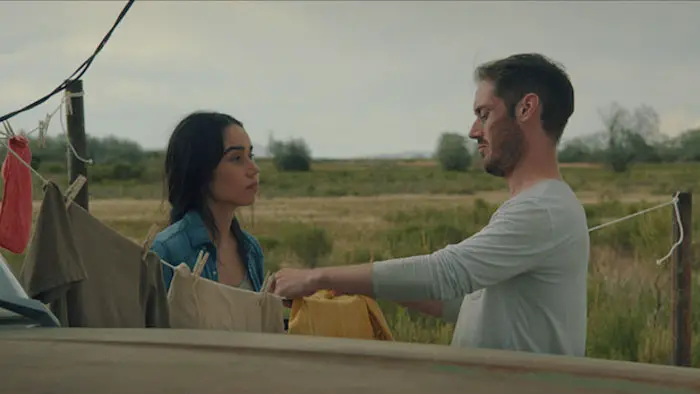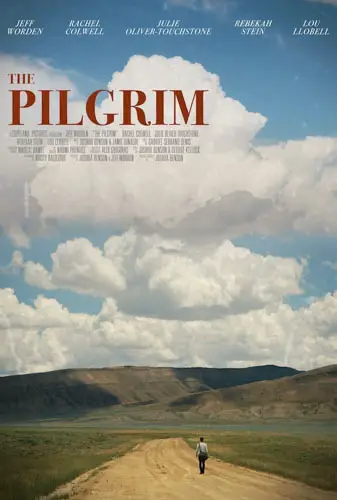
We can’t escape our past, no matter where we go. Even if we cross an ocean to get away from someone or something, the best we can do is put it temporarily out of our minds. It’s a lesson we’ve heard before, but it always bears repeating and is at the heart of director Joshua Benson’s The Pilgrim. The film, written by Benson and George Kellock, doesn’t necessarily break any barriers in terms of formal invention or its overall narrative. However, it’s still one that hits when it matters.
Will (Jeff Worden) is a remarkably successful architect from Wyoming, now living in London with his beautiful girlfriend Claire (Lou Llobell). He lives in a high-rise apartment that most of us can only dream about and regularly enjoys all that the nightlife the city has to offer. However, a call from his sister in Wyoming suddenly shatters Will’s idyllic overseas existence: his estranged mother has passed away.
Initially reluctant to leave life in London, this phone call becomes the impetus for Will to head back home to pick up the pieces in the aftermath of his mom’s death. Will meets his sister only to find that the funeral has already happened and that he has instead been enlisted to help scatter his mother’s ashes back at her family home. Will travels from place to place while trying to make sense of the relationship (or lack thereof) that he had with his mother.

“…been enlisted to help scatter his mother’s ashes back at her family home.”
From this point on, The Pilgrim adopts the mode of the most American of genres — the road movie. Benson and his director of photography, Alex Grigoras, make ample use of the natural beauty of the American landscape. The visual makes the viewer yearn for more American films that aren’t set in New York or Los Angeles. The film is riddled with breathtaking cinematography, and the wide-open spaces that Will encounters represent the challenges in his search for purpose and reconciliation well. The influence of Terrence Malick is all over the cinematography, and at times it’s a little too derivative, but the overall effect is successful.
It’s impossible to escape the allusions to faith throughout the film. It may not be everyone’s bag, but Benson uses it in a relatively unobtrusive way that doesn’t seem like an exercise in proselytizing. There are tropes like country bars and dalliances with loose women that we could have done without, but the film never strays too far from Will’s journey of self-reflection. Worden’s performance is highly memorable, and he really translates his character’s sense of aimlessness and regret.
All told, I wasn’t expecting to enjoy The Pilgrim as much as I did. It’s a visually arresting film about self-discovery that, due to its density, manages to keep one on his or her toes throughout. Through Will, we live through our own pasts and reimagine what we could have done differently. It serves as a poignant reminder that running from our problems will only take us so far and that we eventually must come back home one way or another.

"…visually arresting..."


